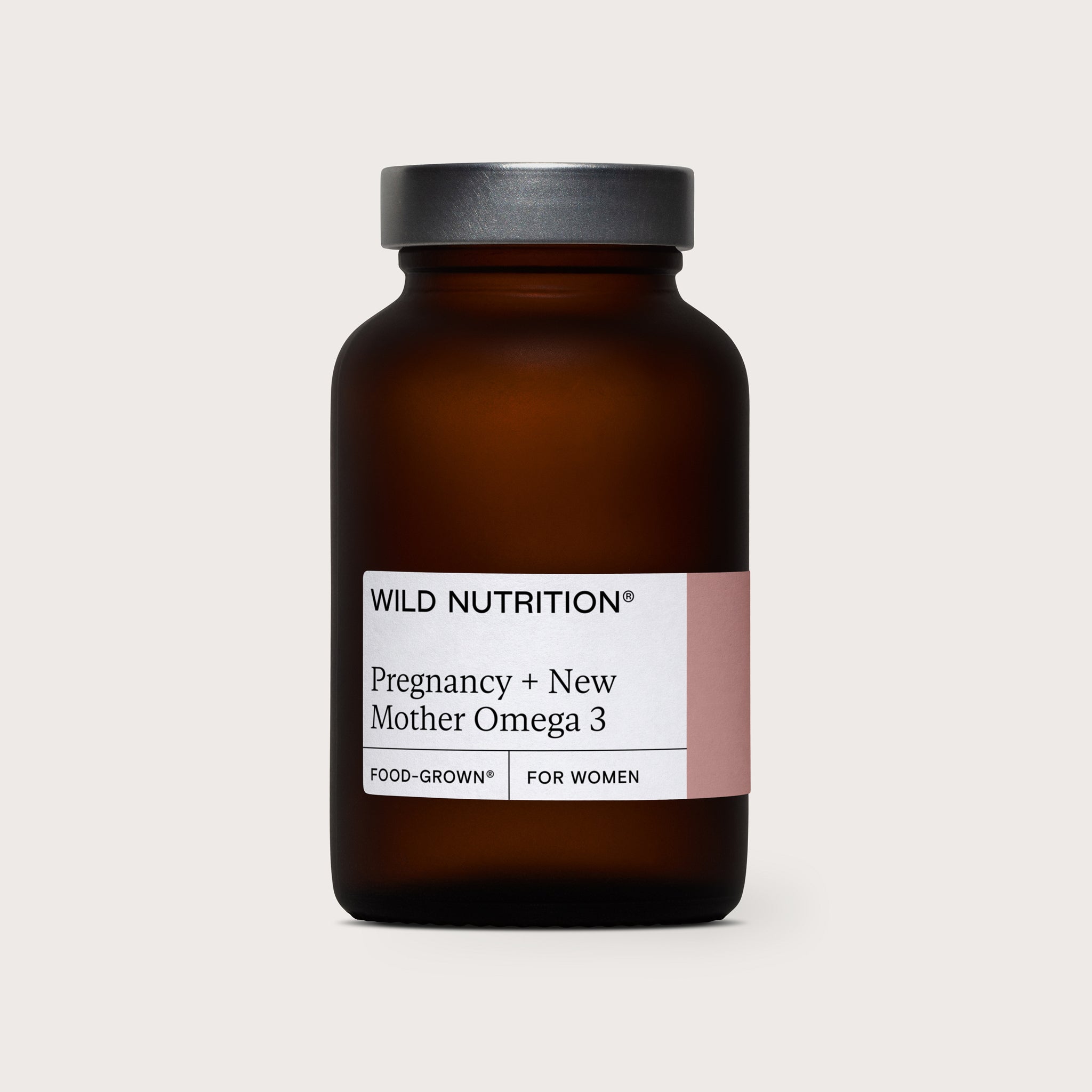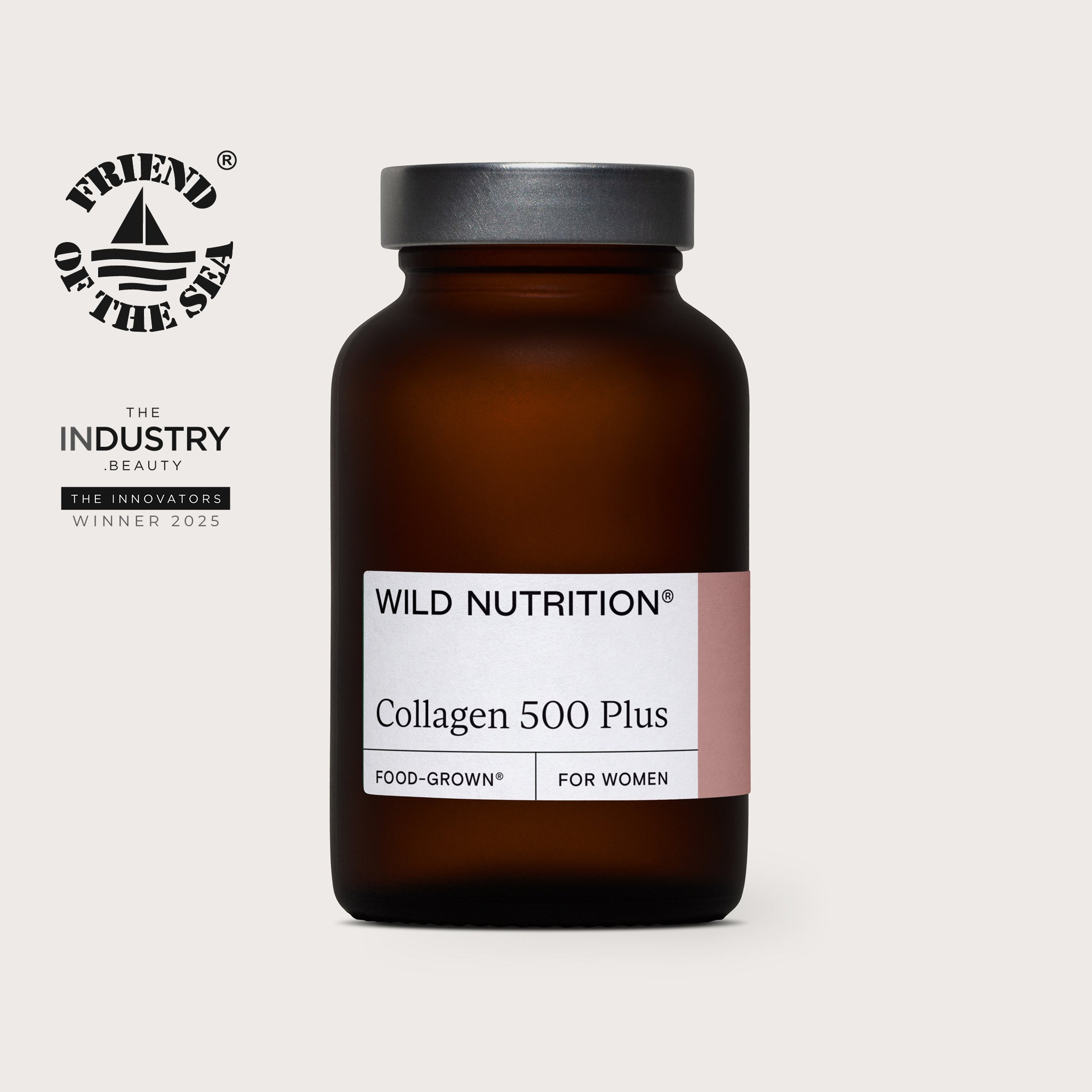
8 ways to futureproof your skin
Discover 8 natural and science-backed ways to futureproof your skin with expert tips on nutrition, lifestyle, and anti-ageing support from Wild Nutrition.
BY JODIE ABRAHAMS
Nutritional Therapist at Wild Nutrition
Supporting the cellular health of your skin not only enhances how it looks and feels today, but also impacts its health, integrity and resilience for the future. But skincare needn’t be complicated. In fact, a simple routine with a handful of key products goes a long way. And leaning on good nutrition will provide it with the essentials to function at its very best.
Here are eight ways you can futureproof it inside and out…
1. Take UV protection seriously

UV is the main culprit of DNA damage to skin cells. It causes premature skin ageing and increases the risk of skin cancer. Wearing SPF, covering up and avoiding midday sun are the most effective ways of preventing damage. Whatever your skin tone, wear a minimum factor 30+ SPF daily on your face - even on cloudy days.
2. Support its structure

Collagen is a protein that plays an essential role in the skin’s structure, elasticity and moisture levels. Our collagen levels start to decline from our mid-twenties, so providing the raw materials needed for its production, as well as pre-made collagen in our diets or supplements, is important to maintain levels.
“Vitamin C is also needed for healthy collagen production - citrus fruits, dark green leafy vegetables and berries, as well as pre-formed collagen from bone broth or stock or a collagen supplement are all excellent sources.”
JODIE
Nutritional Therapist
3. Hydrate

Dehydrated skin can appear dull, and a lack of hydration can also increase the appearance of fine lines on the skin. Skin tissue needs the correct fluid balance to stay supple and smooth. Drinking enough water and non-caffeinated herbal teas daily, rehydrating after exercise and eating fruit and vegetables high in water content will all help to keep skin topped up. Topical and supplemental Hyaluronic acid also helps to enhance efforts as it attracts and retains water.
4. Feed it with the right fats

For skin that’s moisturised from within, include fats that help to maintain its elasticity. Avocados, nuts, seeds, and extra virgin olive oil support skin health, and all contain Vitamin E, which also provides antioxidant support. The EPA form of Omega 3 fatty acids also has anti-inflammatory properties, so it is particularly beneficial for conditions like acne, rosacea, eczema and psoriasis, when skin can be prone to inflammation.
“Taking an Omega 3 supplement and aiming for two portions of oily fish per week, like salmon, mackerel, anchovies, sardines, herring, or trout, will support healthy levels.”
JODIE
Nutritional Therapist
5. Protect with antioxidants

Antioxidants protect the skin from environmental stressors, particularly UV and pollution. Topical antioxidant serums like Vitamin C will work on the outer layer of the skin, whereas including antioxidants in your diet and via supplements will work internally, enhancing the protection of skin cells and preventing oxidative stress.
“Vitamins A, C and E have powerful antioxidant effects, while compounds such as COQ10 and NAC also protect cellular health. Botanicals and plant extracts like pine bark, nettle leaf, bioflavonoids and functional mushrooms are all abundant in antioxidant properties for additional support.”
JODIE
Nutritional Therapist
6. Respect its barrier

The skin barrier works to protect the skin from bacteria, pathogens and environmental stressors. Maintaining its natural pH is key to the barrier’s function and supports its integrity. Avoiding over-cleansing and exfoliating the skin, keeping it well moisturised and hydrated, and building up the strength and frequency of actives are all crucial to a healthy barrier. Zinc, found in seafood, red meat and pumpkin seeds, also plays an important role, helping the skin to repair and heal effectively.
7. Support even pigmentation

Hyperpigmentation and melasma can be triggered by scarring, UV exposure and hormonal changes. Antioxidant support and regulating melanocyte (the cells which give skin its pigmentation) production will help to keep skin tone even.
“Vitamins C, A, and E play key roles in protecting the skin from UV, so include plenty of antioxidant-rich foods in your diet. Think berries, dark green leafy vegetables, avocado, almonds and extra virgin olive oil, carrots and sweet potato”
JODIE
Nutritional Therapist
8. Nourish its microbiome

The skin has its own delicate balance of bacteria or microbiome that play a key role in protecting it. You can nourish it by including pre- and probiotic foods in your diet or taking a probiotic supplement. This will support the skin so it functions, feels and appears healthy now and in the future.
Book your complimentary Beauty, Skin and Hair consultation with our nutritional therapists today.












